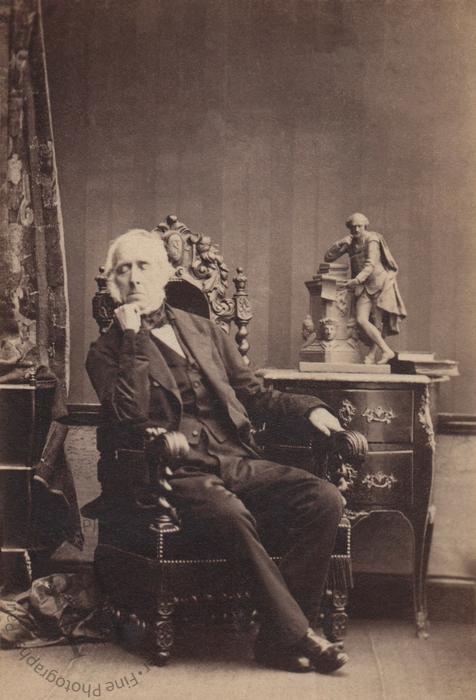Sir James Wigram
(1793-1866)
4 June 1861
Volume 4, page 15, sitting number 4132.
Born on 5 November 1793 at Walthamstow House in Essex, James Wigram was the third son of Robert Wigram (later Sir Robert Wigram, 1st Baronet) and his wife Eleanor née Watts. He was educated privately and at Trinity College, Cambridge (BA 1815, MA 1818). Admitted a student of Lincoln's Inn on 18 June 1813, he was called to the bar there on 18 November 1819.
On 28 October 1818 he married Anne Arkwright, second daughter of Richard Arkwright of Willersley Castle in Derbyshire and granddaughter of the eminent Sir Richard Arkwright. The marriage produced four sons and five daughters, plus several other children who died in infancy.
In 1834 James became a King’s Counsel and the following year he was made a bencher of Lincoln’s Inn. He was also elected a Fellow of the Royal Society the same year.
In 1837 he stood as the Tory candidate for Leominster but was defeated at the polls. He was, however, returned for the borough without opposition at the next general election in 1841.
On 28 October 1841 he was raised to the bench. He was sworn a member of the Judicial Committee of the Privy Council on 15 January 1842, and received the customary knighthood the same month.
Ill-health, eventually resulting in a total loss of sight, forced his resignation from the bench in 1850, although he was granted a pension of £3500 a year.
The Right Honourable Sir James Ingram died, aged 72, on 29 July 1866 at 68 Portland Place, London. He left an estate valued at £70,000.
According to his obituary in the Illustrated London News (11 August 1866): ‘He practised in Chancery with much industry, talent and success. He had attained a very high position in his profession, when he was nominated Queen’s Counsel in 1834 and made a Bencher of his Inn. He was a few months in Parliament, in 1841, as representative of Leominster. He was in the October of that year appointed second Vice-Chancellor, an office he filled with high credit and ability until 1850, when ill-health caused him to retire.’ He was the author of two works in jurisprudence.

